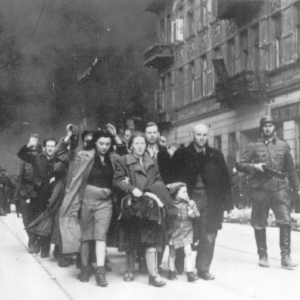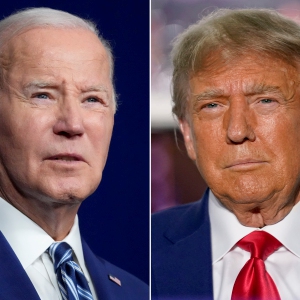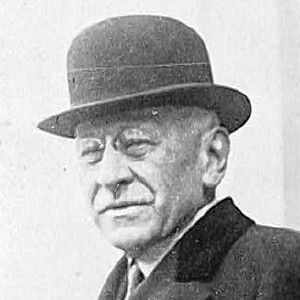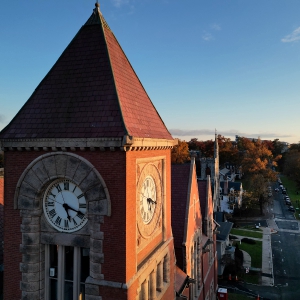Columnist Russ Vernon-Jones: A meaningful step in an unfinished journey
| Published: 01-04-2023 11:32 AM |
It’s hard to know what to make of the UN climate conference, COP27, in Egypt last month. Coming into the “conference of the parties,” the delegates found encouragement in the election of Luiz Inácio Lula da Silva in Brazil, who has pledged to eliminate the deforestation of the Amazon, and the passage of the Inflation Reduction Act in the United States, the largest climate bill ever, with billions of dollars for renewable energy.
On the other hand, the urgency of the climate crisis has been brought into sharp focus by the recent flooding of one-third of Pakistan, which caused more than $30 billion in damages in the fifth most populous country in the world; flooding in Nigeria that displaced 1.4 million people; and lethal drought, famine and heat waves in many parts of the world.
At the opening session of the COP, U.N. Secretary General Antonio Guterres noted that global greenhouse gas emissions keep growing and that global temperatures keep rising. He said, “We are on a highway to climate hell with our foot still on the accelerator.”
One of the key issues was “loss and damage.” Poor countries that have played virtually no role in creating the climate crisis have been experiencing tremendous loss and damage from the flooding, droughts, heat waves, wildfires, and catastrophic storms caused by climate change. For years these nations have been demanding that the wealthy nations, whose emissions caused the climate crisis, pay for climate loss and damage in the developing world. These costs have been ravaging poorer nations and leaving them without the resources to rebuild or to transition to renewable energy.
The U.S. and the E.U., historically the biggest emitters of greenhouse gases, have long resisted even putting discussions of loss and damage on the agenda for the U.N. climate conferences for fear that they would become subject to endless litigation. After the climate disasters of the last year, the developing nations finally succeeded in getting loss and damage on the COP27 agenda this year.
President Joe Biden visited the conference briefly and addressed the delegates. Bill McKibben reported that as delegates streamed toward the hall where Biden was to speak, they all passed a large crowd of activists, mostly from African and island nations, chanting, “Pay up, pay up, pay up for loss and damage.”
On the day the conference was originally scheduled to end, the U.S. was still not supporting the establishment of a loss and damage fund. Speaking to hundreds of the delegates, a 10-year-old activist from Ghana, Nakeeyat Dramani Sam, described some of the horrible damage climate change has caused in her country.
Speaking directly to the wealthy, high-emitting nations, she said, “I put a simple question on the table. When can you pay us back? Because payment is overdue.” She received a standing ovation.
Article continues after...
Yesterday's Most Read Articles
Finally, the E.U., and then the U.S., in a dramatic turnaround, agreed to creating an international loss and damage fund. One of the major accomplishments of this COP was including this fund in its final unanimous agreements. There are still many details to be worked out over the coming year or two, including who will be expected to pay into this fund, how the money will be raised, and which nations will benefit.
It remains to be seen if it will be successfully implemented, but its creation is still a significant accomplishment.
The poorer, climate-vulnerable nations of the world have been advocating for such a fund for 30 years. The fact that they finally won is a big deal — an acknowledgment that their demand is just and right. They succeeded, against all odds, in getting every one of the nearly 200 nations present to agree. The agreement is “a win for our entire world,” said Molwyn Joseph, chair of the Alliance of Small Island States.
If humanity is to have any chance of succeeding in solving the climate crisis, we will need to come together and find common cause across the divisions of wealth and race. The agreement on loss and damage has at its core an acknowledgment that some wealth must flow from the wealthy nations to the poorer ones and from predominately white nations to nations of Global Majority and Indigenous people (aka “people of color”).
As inadequate and incomplete as the agreement is at this point, it makes a difference that every nation has acknowledged this.
As the U.N. Secretary-General told COP27, “It is time for international solidarity across the board.”
On the downside, COP27 failed to yield any significant new commitments to reduce greenhouse gas emissions or curb the use of fossil fuels. The world is still headed for a disastrous rise in global temperatures somewhere between a 2.1°C and 2.9°C. The goal of limiting the global temperature rise to 1.5°C was reaffirmed, although even maintaining that as a target seemed in jeopardy at one point in the conference.
In the U.S., we probably won’t get a penny out of Congress for the international loss and damage fund, or any other climate action, in the next two years. But during these two years we can be about two major projects: 1) Building public support for the U.S. to pay its fair share of global climate costs and actions; and 2) Pressing our local cities and towns to accelerate the reduction of their carbon footprints.
Right now, on the heels of COP27, is a good time for all of us to talk to our neighbors and contact our federal, state, and local representatives to urge active support on both these fronts.
Russ Vernon-Jones of Amherst was principal of Fort River School for 18 years and is a member of the Steering Committee of Climate Action Now. The views expressed here are his own. He can be reached at russvj@gmail.com. He blogs regularly on climate justice at http://www.russvernonjones.org.
 Richard S. Bogartz: What the ghosts of Warsaw Ghetto know
Richard S. Bogartz: What the ghosts of Warsaw Ghetto know Guest columnist Dr. David Gottsegen: Age issue not so key as question of marbles
Guest columnist Dr. David Gottsegen: Age issue not so key as question of marbles Guest columnist Martha Hanner: Spirit of philanthropy can uplift so many others
Guest columnist Martha Hanner: Spirit of philanthropy can uplift so many others Guest columnist Ali Wicks-Lim: Racism is in our way
Guest columnist Ali Wicks-Lim: Racism is in our way